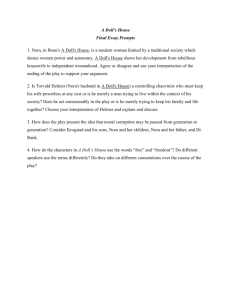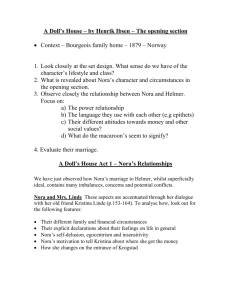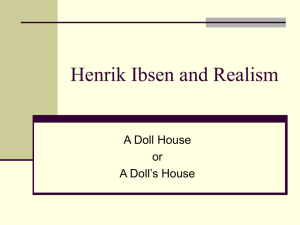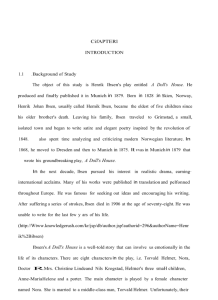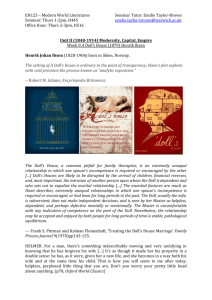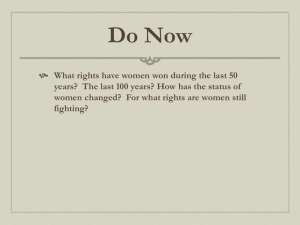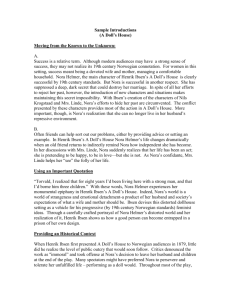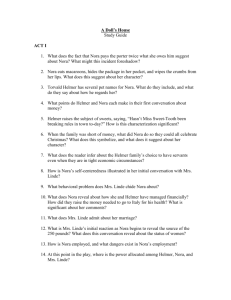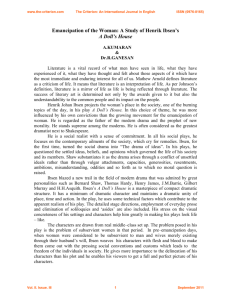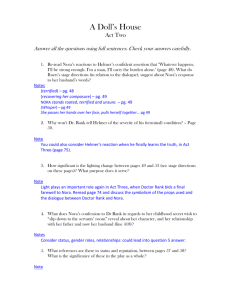File
advertisement
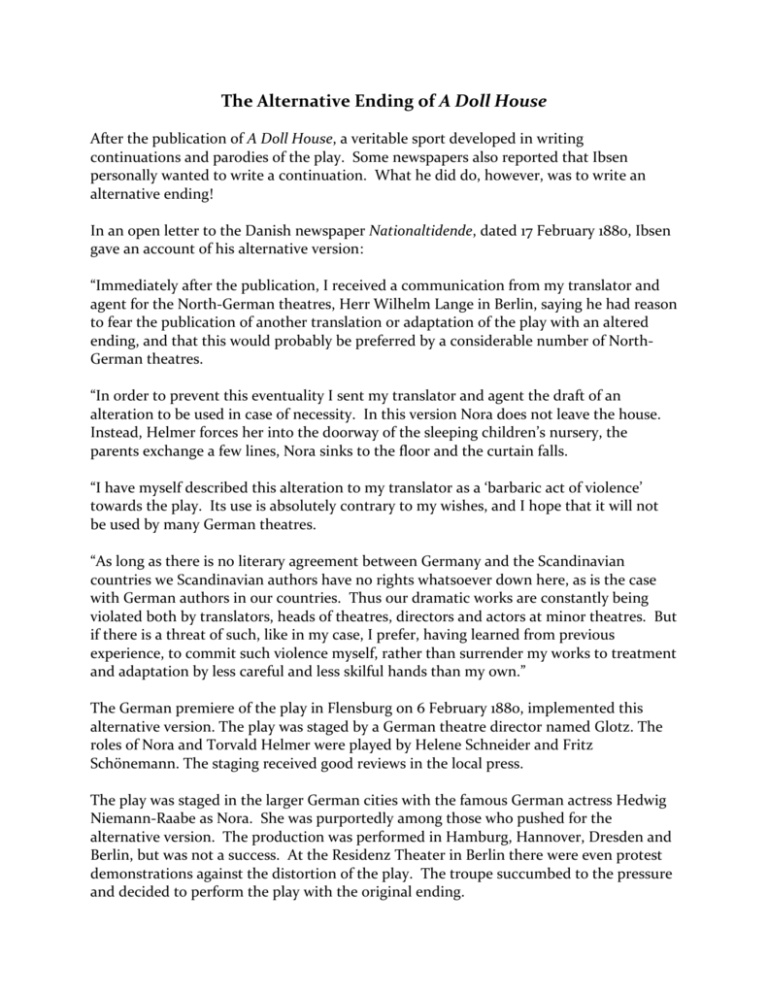
The Alternative Ending of A Doll House After the publication of A Doll House, a veritable sport developed in writing continuations and parodies of the play. Some newspapers also reported that Ibsen personally wanted to write a continuation. What he did do, however, was to write an alternative ending! In an open letter to the Danish newspaper Nationaltidende, dated 17 February 1880, Ibsen gave an account of his alternative version: “Immediately after the publication, I received a communication from my translator and agent for the North-German theatres, Herr Wilhelm Lange in Berlin, saying he had reason to fear the publication of another translation or adaptation of the play with an altered ending, and that this would probably be preferred by a considerable number of NorthGerman theatres. “In order to prevent this eventuality I sent my translator and agent the draft of an alteration to be used in case of necessity. In this version Nora does not leave the house. Instead, Helmer forces her into the doorway of the sleeping children’s nursery, the parents exchange a few lines, Nora sinks to the floor and the curtain falls. “I have myself described this alteration to my translator as a ‘barbaric act of violence’ towards the play. Its use is absolutely contrary to my wishes, and I hope that it will not be used by many German theatres. “As long as there is no literary agreement between Germany and the Scandinavian countries we Scandinavian authors have no rights whatsoever down here, as is the case with German authors in our countries. Thus our dramatic works are constantly being violated both by translators, heads of theatres, directors and actors at minor theatres. But if there is a threat of such, like in my case, I prefer, having learned from previous experience, to commit such violence myself, rather than surrender my works to treatment and adaptation by less careful and less skilful hands than my own.” The German premiere of the play in Flensburg on 6 February 1880, implemented this alternative version. The play was staged by a German theatre director named Glotz. The roles of Nora and Torvald Helmer were played by Helene Schneider and Fritz Schönemann. The staging received good reviews in the local press. The play was staged in the larger German cities with the famous German actress Hedwig Niemann-Raabe as Nora. She was purportedly among those who pushed for the alternative version. The production was performed in Hamburg, Hannover, Dresden and Berlin, but was not a success. At the Residenz Theater in Berlin there were even protest demonstrations against the distortion of the play. The troupe succumbed to the pressure and decided to perform the play with the original ending. The English translation of the alternative ending: Outside of Germany A Doll House with Ibsen’s alternative ending, according to sources, was only staged on one single occasion at the Swedish Riksteatern in 1956. Below the ending is rendered in an English translation from The Oxford Ibsen, Vol. X / translated and edited by James Walter McFarlane . - London: Oxford University Press, 1961, p. 287f. NORA. ...Where we could make a real marriage out of our lives together. Goodbye. [Begins to go.] HELMER. Go then! [Seizes her arm.] But first you shall see your children for the last time! NORA. Let me go! I will not see them! I cannot! HELMER [draws her over to the door, left]. You shall see them. [Opens the door and says softly.] Look, there they are asleep, peaceful and carefree. Tomorrow, when they wake up and call for their mother, they will be - motherless. NORA [trembling]. Motherless...! HELMER. As you once were. NORA. Motherless! [Struggles with herself, lets her travelling bag fall, and says.] Oh, this is a sin against myself, but I cannot leave them. [Half sinks down by the door.] HELMER [joyfully, but softly]. Nora! [The curtain falls.]
